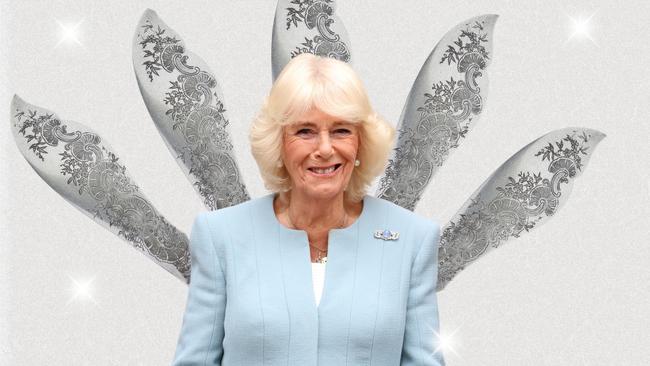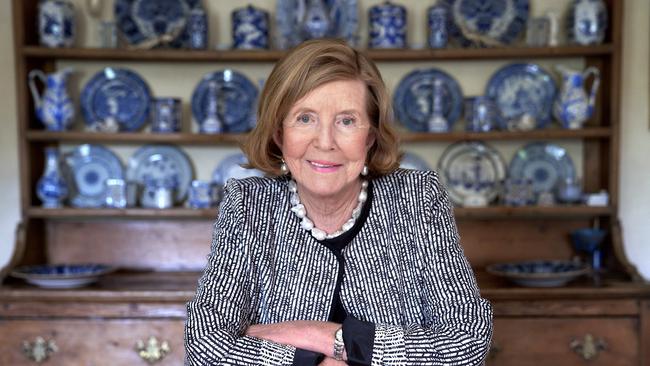Why Queen Camilla wouldn’t be seen dead using a fish knife
Princess Margaret’s former lady-in-waiting Lady Anne Glenconner tells the Cheltenham Literature Festival how the Queen reacted to being offered the utensil.

“Phone for the fish knives Norman/ As cook is a little unnerved,” Sir John Betjeman wrote in his 1958 satirical poem How to Get On in Society.
The poet laureate mocked the utensil as a telling sign - just like wielding a fork for one’s pastries or using a “serviette” - that one had not quite mastered the etiquette needed to “get on”.
And while the poem may have been written more than 50 years ago, it seems that fish knives are still being maligned - with the Queen apparently among those who would not be seen dead using one.
Speaking at the Cheltenham Literature Festival, sponsored by The Times and Sunday Times, Princess Margaret’s former lady-in-waiting Lady Anne Glenconner revealed Camilla’s reaction to the utensil while out for lunch with her sister, Annabel Elliot.

After the restaurant had placed both a fish knife and an ordinary knife on the table, Glenconner, 92, recalled: “The waitress came and asked, ‘Which knife would you want?’ and the three of us said, ‘phone for the fish knives, Norman’. And the Queen, she knew all the words - everyone in the restaurant was just amazed.”
Indeed, the utensil’s reputation is such that Buckingham Palace does not have a single example in its vast cutlery collection, according to the etiquette expert William Hanson, who joined Glenconner for the discussion.
Explaining why the utensil was missing from the Palace’s cutlery collection, Hanson said: “There are two things: one is the class thing and fish knives are seen as downmarket. But Buckingham Palace’s cutlery goes back to Georgian times and fish knives had not been invented then, so they don’t have them by default.

“When fish knives came in at the end of the Victorian period they were seen as a little bit middle-class, which was the class that boomed during the Industrial Revolution [and they] invented cutlery for everything.”
In his book on etiquette, Just Good Manners, Hanson writes that a fish knife was a “social marker that the host was a touch common” and that the Queen Mother would instead eat fish with two regular forks.
Glenconner, who was speaking about her new book The Picnic Papers, disclosed that Princess Margaret had unsurprisingly forthright views on etiquette. The late princess considered using French replacements for English words “snobby”, preferring loo instead of toilet and napkin over serviette.
Margaret did allow herself to break protocol on at least one occasion, when she asked Glenconner to curtsy to Wallis Simpson to please the late Duke of Windsor, despite the fact that Simpson did not have an HRH title.

“In the car going [to meet them], I said to her ...’Ma’am, should I curtsy?’ And Princess Margaret looked at me and said, ‘Why not, it will please Uncle David so much’, so I did curtsy,” Glenconner said. “I think that was polite, that was good manners, although strictly speaking one shouldn’t curtsy to her, but I did.”
Hanson - who has millions of followers on social media, where he explains etiquette rules - agreed that in some cases it was more polite to break etiquette and that what is considered good manners will change as society develops. But he added: “The core pillars of good manners remain the same and are timeless, ageless, classless and they are always there.”
However, the etiquette expert admitted he is not infallible - having once almost dropped a knife on the late Duke of Edinburgh’s head during a formal lunch. “I looked to the other side of the table to see if the butler had seen this, but he was long gone and looking at me with a twinkle in her eye was the [late] Queen,” he said. To this Glenconner joked: “Hoping you might succeed.”
The Times



To join the conversation, please log in. Don't have an account? Register
Join the conversation, you are commenting as Logout